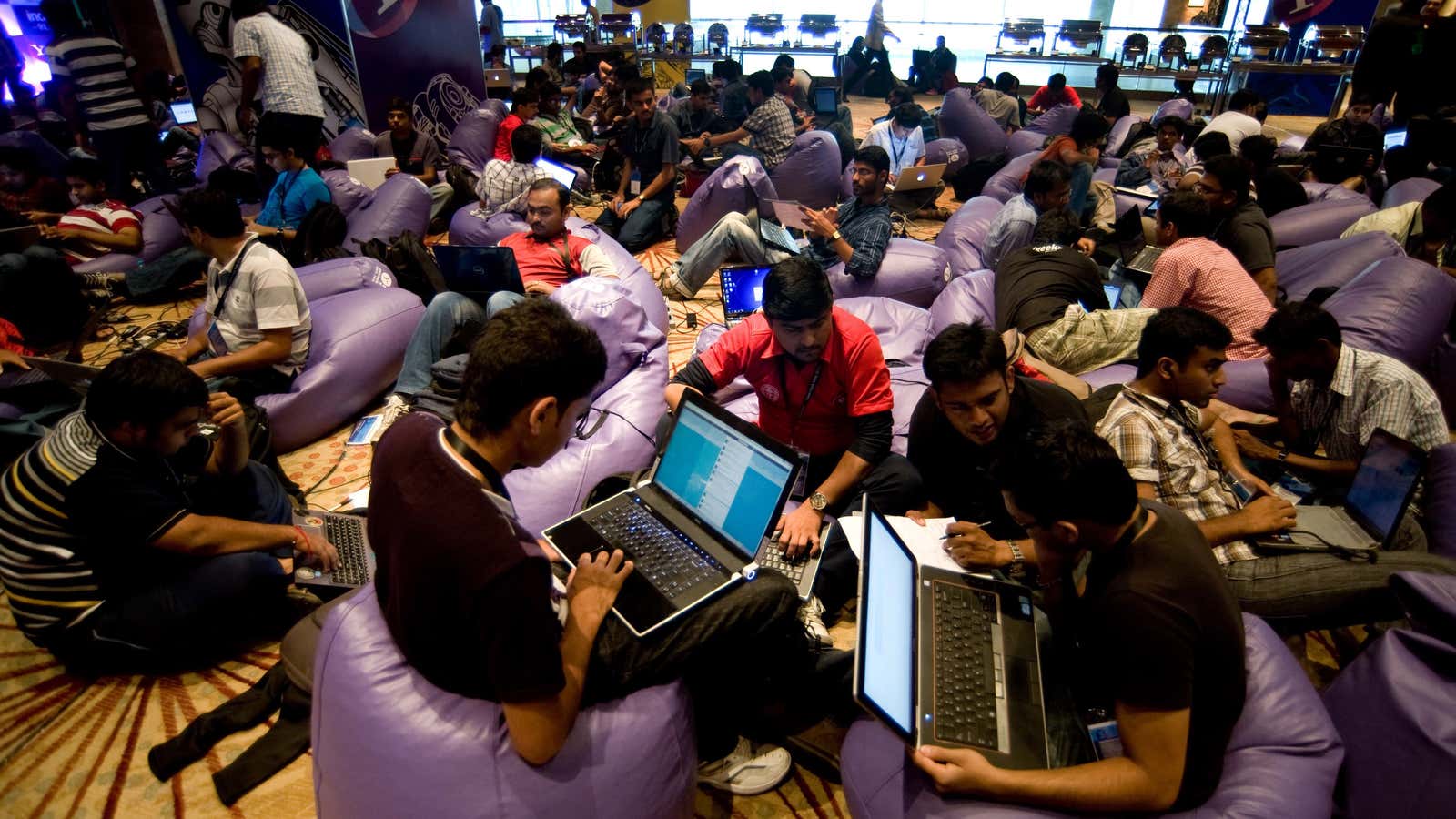One of India’s biggest strengths is how many innovators and inventors it has. One of its biggest weaknesses is how difficult it is to protect their ideas.
It’s not for lack of trying. Last year, the Indian government’s “National Intellectual Property Rights Policy” laid the groundwork for a robust legal framework compliant with global standards that would reduce copyright infringement. The policy is intended to boost entrepreneurship in the country, one of the aims of prime minister Narendra Modi’s ‘Make In India’ and ‘Startup India’ initiatives.
The government also made it simpler last year to register trademarks online, hired 100 trademark examiners, and reduced the 13-month review period for trademarks to eight months, with the goal of lowering it to just one month by March 2017. Cutting the average time for addressing pending intellectual property rights applications from more than five years to 18 months is also on the agenda for this year.
Despite these efforts, India’s overall score improved only marginally in the fifth edition of a global intellectual property index (pdf) compiled by US business-lobbying group, the US Chamber of Commerce, and published this week. The annual index, accompanied this year by a report titled ”The Root of Innovation,” gave the country a score of 8.75 out of 35, compared to 7.05 the previous year, citing “fundamental weaknesses” in the country’s intellectual property framework. The index scores countries in six categories: patents, copyrights, trademarks, trade secrets and market access, enforcement, and ratification of international treaties.
India ranked a lamentable 43 out of 45 countries.
Despite increased legal protection, copyright infringement is still rampant in India due to lax administration and enforcement practices. India’s film industry, for example, loses $2.5 billion to piracy every year. Indian policies also often fail to protect innovations in life sciences, the report says, which can include biotechnology and pharmaceutical discoveries. And countries like the US and the UK rank highly because they are signatories in a variety of international intellectual property treaties—deals India has barely participated in. Signing a number of cross-country treaties—worth a full point each—could help India climb the rankings.
Although the latest intellectual property laws moved India in the right direction, the report’s authors said a battle over illegally photocopied textbooks last year between some of the world’s leading academic publishers (including the Oxford and Cambridge University presses, as well as Taylor & Francis), the University of Delhi, and a local photocopy shop, set it a few steps back.
“In a significant blow to rights holders, not only did the court find nothing wrong with the University of Delhi providing a photocopied master-copy of course texts for students to photocopy themselves in the university library, but it also did not object to the obvious commercial gain derived from the copy shop for providing this service.”
